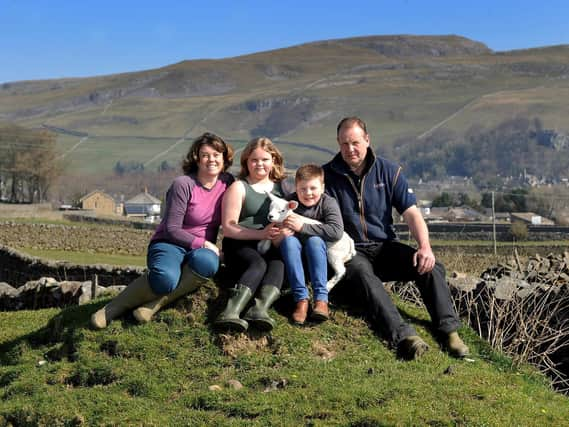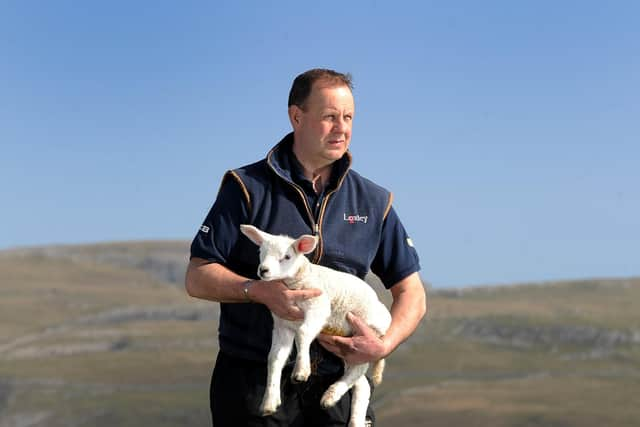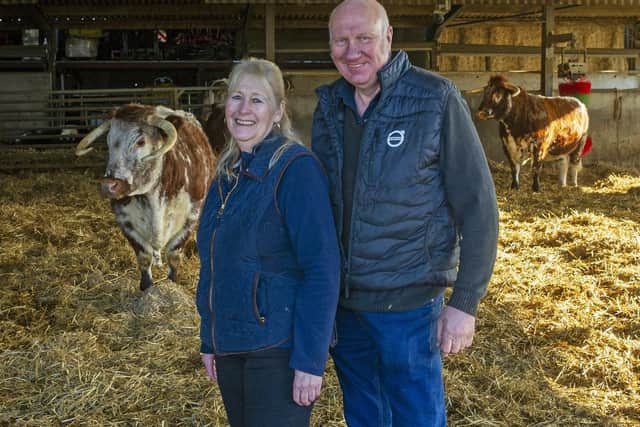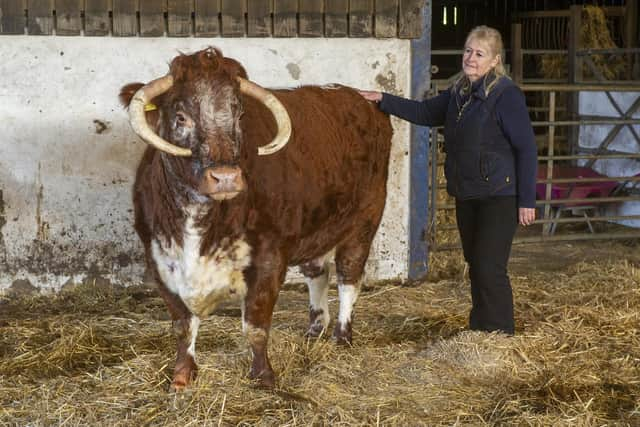Farming families' resigned heartache at cancellation of Great Yorkshire Show


Years later, he would meet his wife Alison at the event, devising a plan to win her affection as they both showed Texel sheep. This summer, their own eight-year-old son was ready to take part.
But with the cancellation of the country’s largest agricultural show for only the second time in its history, this family tradition is to falter, as will so many others.
Advertisement
Hide AdAdvertisement
Hide AdAnd as bitter as it may taste to accede, the senior steward accepts absolutely that it must be. Underlying it all, he says, is an undeniable sense of sorrow.


“It’s not just my children, it’s all the others, who would have been beginning this way of life,” he says. “They’re the next generation.”
Mr North’s memories of the Great Yorkshire Show began with those annual visits as a boy. Staying at the caravan site all week, and ‘potting about’ on bikes in the ring.
“To a little boy, it seemed huge,” says the now 51-year-old. “Our family has shown for a long time, I was used to the one-day events.
Advertisement
Hide AdAdvertisement
Hide Ad“But to go from that, to the Yorkshire Show, was massive. There was so much to see.”


'Shop window'
The Giggleswick farmer, from Brackenber Farm, would go on to compete himself, taking Champion Butcher’s Lambs in 1987, then Supreme Champion with his Texels in 2000.
For the past 10 years, he has been on the sheep committee, now as joint chief steward, and the Yorkshire Agricultural Society’s council. The past months have been spent in readiness for this summer’s show.
“We’ve been building,” he says, with regret. “Getting the judges sorted, and the schedule ready to go out this month.


Advertisement
Hide AdAdvertisement
Hide Ad“People plan their whole year, from leaving the show in July they start on the way home. What they’re going to show, what they’re going to produce.
“The Yorkshire Show is the biggest part of their year. It’s a significant show, and massively important. It’s a shop window, you see, for the autumn.”
That last line is of critical importance. There are up to 60 breeds in the sheep section, and 2,700 sheep last year. Right now, many farmers are lambing, or readying for the season.
But in the autumn, comes the breeding sales.
For Mr North, it’s tups, for next year’s lambs. The show is the window, when it comes to auction, and in deciding what to buy.
Advertisement
Hide AdAdvertisement
Hide Ad“Farmers can still get out, they can still work,” he says. “It’s just the everyday, we’ve got to go about in a different way.
“Hopefully, as time goes by, we can find a solution.
“It’s a huge disappointment. It’s just one of those things.”
Family holiday
In the rural parish of Ripponden in West Yorkshire, hill farmer Rachel Hallas is also subdued.
At Beeston Hall they have cattle and sheep, and every year show their Salers, those great mahogany beasts so classically associated with the pomp and ceremony of the competition ring.
Advertisement
Hide AdAdvertisement
Hide AdThis year’s show would have been more than a few days away, it would have been their family holiday. To catch up with friends, just once a year.
“Our children have grown up showing, they are now young adults,” she says. “It’s what we do. We decamp every year, and everything comes with us. We don’t farm, for that week.
“Yes it’s a show, but actually it’s our family. That’s why it means so much, to see the show cancelled.”
Mrs Hallas is passionate when she speaks about what the show means to her family, and the frustration is clear in her voice, even as she recognises there are no options.
Advertisement
Hide AdAdvertisement
Hide Ad“We show all over the place, but I’ve always said there’s no place like the GYS,” she says with anguish. “It’s like home.
“I completely respect the decision to cancel, it’s absolutely the right thing to do. But it’s a hole in the calendar, that will be felt. It is for the right reasons, there will be another year.”
Anticipation
The Blockley family, from Drighlington, are well known exhibitors, with grandfather David a former national chairman of the Longhorn Cattle Society.
Wife Angela, of Southfield Farm, says they had started showing cattle as a couple in 1993, taking supreme champion at least twice.
Advertisement
Hide AdAdvertisement
Hide Ad“It’s been a part of our lives since we were young children,” she says. “We’ve never missed a year, except for when it closed because of foot and mouth.
“My own daughter got a Dales pony when she was nine, and showed it very successfully.”
For decades, the family has focused on the Great Yorkshire Show as something to look forward to every summer.
The anticipation, and excitement, of the show ring, and the jovial chatter in the cattle sheds. There is a jostling competition among farmers, she says, but it’s all for show.
Advertisement
Hide AdAdvertisement
Hide Ad“This has just always been a part of our lives,” she adds. “It isn’t about showing, and winning, it’s about the camaraderie. Whoever the winner is, they always buy the drinks.
“We picked our show team in the January. We just feel deflated. That’s it then, for this year.”
Spectacle
Part of the spectacle that makes the show so special is in the effort that people put into it, says Mrs Blockley, in the months of preparation, but also in farmers’ dusting down their best dress.
“It’s a big event,” she says. “You see all the hill farmers, and they might not often get away, but they do for the show.
Advertisement
Hide AdAdvertisement
Hide Ad“You see them all in their finest, with their watchchains on and their waistcoats out, it’s the highlight of their year.”
With news of the virus over recent weeks and months, it had come as no surprise to hear this week that the Great Yorkshire Show had been cancelled.
For farmers across Yorkshire, says Mrs Blockley, life carries on. Every day they rise early, to tend to their livestock, or to ready for the months ahead.
They can work, and are glad of it. To be outdoors, and busy. Farmers are hardy folk, she adds, and well used to adversity.
Advertisement
Hide AdAdvertisement
Hide AdWhat the coming months may bring will be hard for everybody. But they will do their best, regardless.
“So many hill farmers are isolated, just trying to scratch out a living,” she says. “But farmers always rise up to the occasion.
“No matter what the weather throws our way, we always come through. So many have already been devastated by the floods. Lost their silage, or crops. Only they still plough through.”